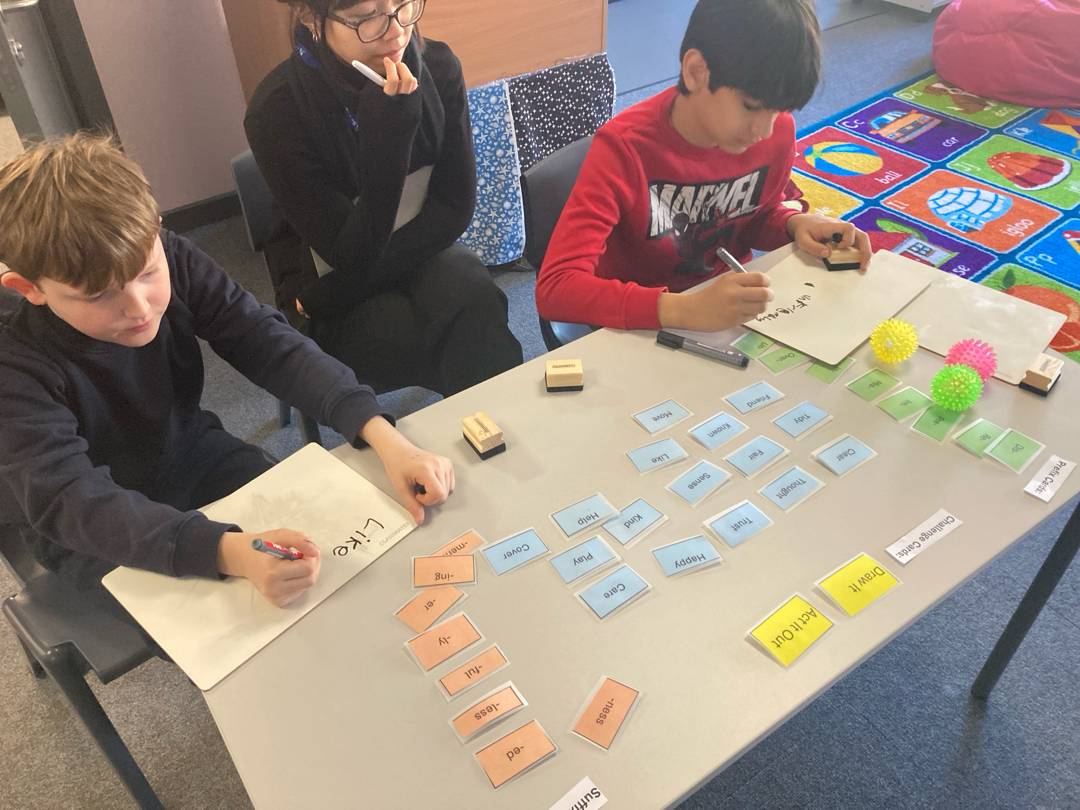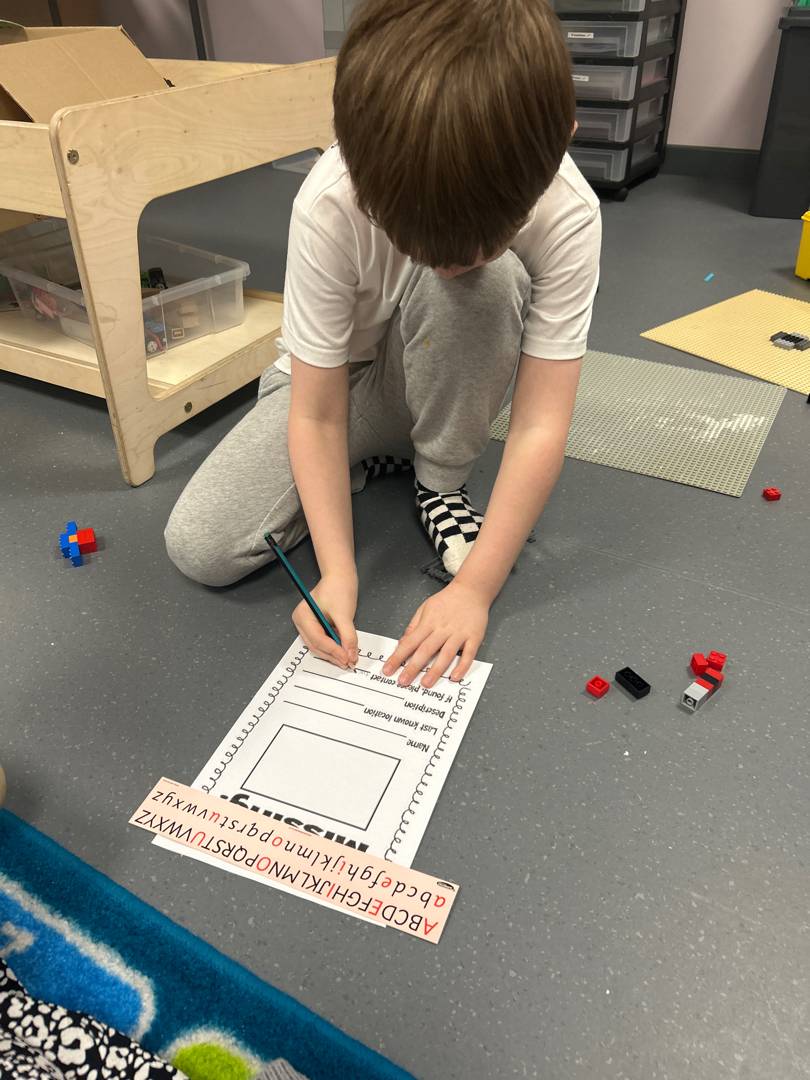Writing in Primary
Writing must be an enjoyable and meaningful experience for all pupils. To prepare students for writing, we build their fine motor skills in a variety of multi-sensory and motivating activities, especially drawing and early mark making. We also practice telling stories through singing songs, role play and sensory stories.
Our approach is focused on real-life writing tasks such as making shopping lists, writing cards, or labelling items as well as creative writing such as stories and poems. We aim to build confidence and skill in writing through purposeful, practical activities that motivate pupils to use writing in ways that feel relevant to their daily lives.

Individualised and Flexible Approach
Our writing curriculum adapts the diverse needs of our pupils. Some children may use symbols, cartoon comics, pictures, or assistive technology to communicate, while others might focus on mark-making, typing, or writing sentences.
As with all other learning, writing is underpinned by the SCERTS framework to support communication and social interaction. We also focus on building writing skills using subject-verb-noun (S-V-N) sentence structure and colourful semantics, helping pupils construct sentences clearly and meaningfully.

Phonics and Early Writing Skills
For pupils learning to write, phonics plays an important role. We teach phonics through an individualised approach, recognising that some children benefit from structured phonics programmes while others may rely more on visual word recognition or whole-word learning. Our aim is to build phonemic awareness and ensure that writing feels accessible and motivating for each child.
By setting up structures that provide support to engage with learning in the classroom and beyond, this can then be adapted as the children grow and learn. For example a “Now-Next” boards can become a schedule and then a written checklist.
Creative Writing and Storytelling
Creative expression is encouraged through drama, role play, and storytelling. Pupils can engage in activities like acting out stories and then writing or drawing about them, helping to develop their narrative skills in a fun, supportive environment. These activities are linked to other subjects, making writing more relevant and engaging.
Building Communication Through Writing
Writing helps pupils communicate their thoughts and ideas, whether through words, symbols, or typing. We prioritise functional communication, ensuring each child has the support needed to express themselves. The SCERTS framework is integrated into all writing tasks making it a meaningful and accessible way for pupils to connect with others.
Supporting Reluctant Writers
We understand that some pupils may be reluctant writers, so we offer flexible, low-pressure writing activities that build confidence and skill over time. Starting with achievable tasks and offering plenty of encouragement, we help pupils see the value of writing and gain confidence in their abilities.
Cross-Curricular Learning
Writing is integrated into other subjects, such as science and drama, to make learning more relevant. Pupils may write about their experiences in other subjects or after engaging in role-play, further connecting writing to real-life experiences and ensuring it feels purposeful.

